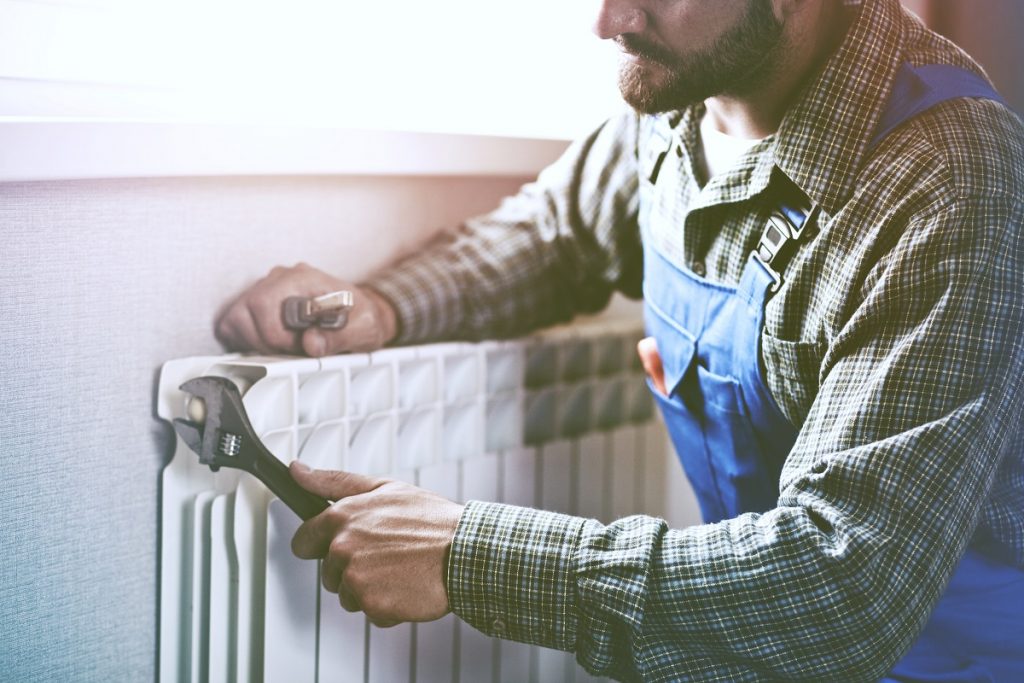- Regular cleaning and proper ventilation are fundamental for improving indoor air quality and reducing airborne allergens.
- Controlling humidity levels helps prevent mold growth and damage to furniture and walls.
- Air purifiers effectively filter out harmful pollutants, and avoiding synthetic fragrances reduces exposure to potentially harmful chemicals.
- Incorporating indoor plants into your home decor naturally purifies the air, improving health and well-being.
Keeping your home’s air clean is essential for your health and well-being. Whether dealing with allergens, dust, or poor ventilation, maintaining clean air can be challenging. Nevertheless, the right approach and tools can significantly improve indoor air quality. Explore some of the best ways to ensure clean air in your home.
Do Regular Cleaning
Regular cleaning is one of the easiest and most effective ways to clean your home’s air. Vacuuming, dusting, and mopping can help reduce allergens and other airborne particles. Make sure you also clean any upholstery or carpets in your home. Here are more tips for effective cleaning:
Ensure Proper Ventilation
You want to ensure the air in your home is fresh and healthy for you and your family. One way to ensure this is by properly ventilating your home. Proper ventilation allows for a constant fresh air flow while removing stale air. This is important because it helps remove indoor pollutants that accumulate over time, such as smoke, pet dander, and chemical fumes.
By ventilating your home correctly, you can help promote better respiratory health and prevent illnesses caused by poor indoor air quality. So, open windows, turn on exhaust fans in your kitchen and bathroom and invest in an air purifier to ensure the air in your home is as fresh as possible.
Ensure Humidity Control
Ensuring humidity control in your home is essential for maintaining a comfortable living environment. Humidity refers to the amount of moisture in the air, and high humidity levels can lead to a host of issues, such as mold growth, unpleasant odors, and even damage to your furniture and walls.
To properly maintain humidity control, you must use a dehumidifier in more damp areas, like the basement or bathroom. Additionally, ensure proper airflow by opening windows or using fans, especially when cooking or showering. With proper humidity control, you will not only reduce the risk of damage to your home but also improve the overall comfort of your living space.
Ensure Regular Maintenance of HVAC Systems

Maintaining your HVAC system is crucial to ensure it operates efficiently and effectively. Regular maintenance includes changing air filters, inspecting the cooling and heating components, and cleaning the system’s ducts. Hiring reputable air duct cleaning services to clean the air ducts in your HVAC system is essential to remove accumulated dust, mold, and other contaminants.
This helps to prevent allergens from circulating in your home and maintain good indoor air quality. Experts recommend cleaning your ducts once every three to five years to keep your HVAC system functioning properly. It may seem like a small detail, but maintaining your HVAC system can greatly impact your home’s air quality and your family’s health.
Use Air Purifiers
Breathing in fresh air is a necessity for optimal health. An air purifier can help you achieve this by effectively filtering out harmful pollutants and contaminants in your home. To ensure the proper use of your air purifier, it’s important to identify the room size and select a suitable one.
Additionally, positioning your air purifier in an area with good air circulation and away from obstructions is crucial to its effectiveness. Remember to regularly clean or replace your air filter to maintain its optimal performance. An air purifier can benefit your well-being and provide a healthier living environment.
Avoid Synthetic Fragrances
Are you looking to create a healthier living environment in your home? One way to achieve this goal is to avoid synthetic fragrances. These fragrances are often found in household items like air fresheners, candles, and cleaning products. While they may make your home smell nice, they can contain harmful chemicals that can harm your health.
For example, they can trigger allergies or cause respiratory problems. Avoiding these synthetic fragrances can create a safer and healthier home for you and your family. Instead, opt for natural alternatives such as essential oils or open your windows to invite refreshing indoor air.
Have Indoor Plants

Having indoor plants is a great way to add some natural beauty to your home, and it’s not just visually appealing – there are benefits to your well-being, too! Plants are excellent air purifiers, as they naturally filter out toxins from the atmosphere. This means that having indoor plants can greatly improve the air quality in your living spaces, leading to better sleep, a reduction in stress, and more oxygen to your brain!
It’s important to choose the right plants for your home and properly care for them so they can clean up your air supply. By doing so, you’ll not only add some green to your decor, but you’ll also be improving your overall health and well-being!
You have the power to improve the air quality in your home. Start implementing these strategies today and breathe easier in a healthier and more comfortable living space.

